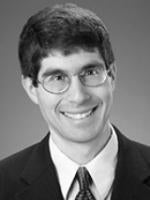This morning, in a highly anticipated decision, a fractured Supreme Court affirmed the Federal Circuit's judgment in Bilski v. Kappos. The Court unanimously upheld the rejection of Bilski's patent claims, which concerned a process for hedging against the risk of price changes in the energy market. But the Court split on the grounds for rejecting the claims, with the majority characterizing the claims as impermissible attempts to patent abstract ideas while explicitly leaving open the possibility of protecting "business method" inventions in other contexts.
Writing for the majority, Justice Kennedy (joined in full by Chief Justice Roberts and Justices Thomas and Alito, and in part by Justice Scalia), held that the Federal Circuit's "machine-or-transformation" test is not the sole test for deciding whether an invention is a patent-eligible process. In so doing, the majority overruled the Federal Circuit on this point and arguably broadened the realm of patent-eligible subject matter. The "machine-or-transformation" test remains a "useful and important clue" in determining whether an invention comes within the scope of patent-eligible processes under 35 U.S.C. sec. 101, but it is no longer the exclusive test.
The majority also rejected the invitation to overturn all "business method" patents. Section 101 of the patent statutes precludes the broad contention that the term "process" categorically excludes business methods.
Although rejecting a categorical rule that an invention must be tied to a particular machine or transform a particular article, the majority nevertheless rejected Bilski's patent claims on the ground that they merely described abstract ideas. The majority reviewed its prior opinions in the Benson, Flook, and Diehr cases, and concluded that these opinions make clear that Bilski's patent application was not directed to a patentable process. In so doing, the majority provided little explanation beyond the guideposts of the Benson, Flook, and Diehr cases. The majority indicated that a "fundamental economic practice" is not patentable, nor is reducing such a practice to a mathematical formula. Beyond that, the majority found its precedents sufficient to dispose of Bilski's patent claims.
The Court came close to categorically rejecting all "business method" patents. Justice Stevens, writing for himself and Justices Ginsburg, Breyer, and Sotomayor, concurred in the judgment but would have held that "methods of doing business are not, in themselves, covered by the statute [35 U.S.C. sec. 101]."
Today's opinion in Bilski appears to continue the Supreme Court's recent proclivity to overturn categorical rules set forth by the Federal Circuit, e.g., the "teaching-suggestion-motivation" test (KSR) and the presumption of irreparable harm (eBay), in favor of more generalized standards set forth either in the patent statute itself or in well-established Supreme Court precedent. While the significance of the Bilski decision will be determined in future cases, the Court's careful grounding of its "abstract ideas" analysis in well-established precedent suggests that this case likely does not portend a "sea change" in the law of business method patents or software patents as many hoped or feared. Patent applicants are no longer required to meet the "machine-or-transformation" test, but the Supreme Court made clear that pure business methods will be scrutinized to ensure that abstract ideas are not patented.


 />i
/>i

